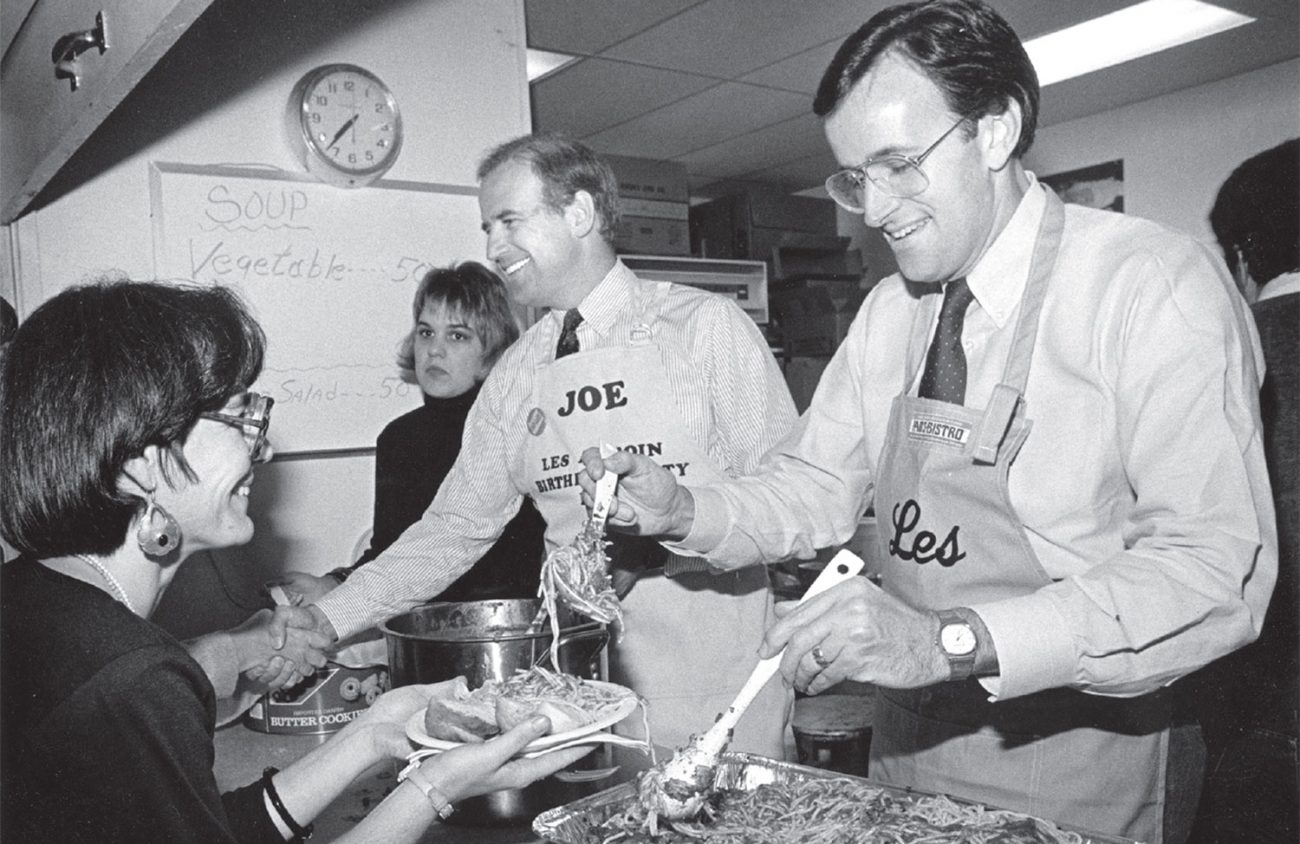Shortly after President Ronald Reagan took office in 1981, he urged Americans to call their representatives and tell them to support his economic plan, which had been dubbed “voodoo economics” by George H.W. Bush while both men were running for the Republican Party nomination.
Then a congressman, Les AuCoin tells Eugene Weekly that his office received a barrage of phone calls and letters from constituents demanding he support the Reagan’s plan.
One complaint came from the office of Lewis and Clark College’s president, whom AuCoin says was a “Reagan acolyte.” The university president wrote that the U.S. never tried an economic plan like this before, and if AuCoin didn’t support it, he’d see that he wouldn’t be re-elected.
AuCoin immediately wrote back, saying, “We haven’t tried fascism either,” according to his newly published memoir Catch and Release: An Oregon Life in Politics.
This exchange is one of his many reflections on his long career. In the memoir, AuCoin looks back at his upbringing, his time as a legislator in Salem, his political career and life as a congressman in Washington, D.C., as well as the controversial defeat in his challenge against incumbent Republican Sen. Bob Packwood in 1992.
Not being a “turncoat” Democrat who gave in to Reaganism, he tells EW he faced a Reaganite challenger in 1984. He says that, in the election race, he wanted to expose the idiocy of a platform calling for history’s greatest tax cuts, military build-up and a balanced budget in four years.
“It was insane, mathematically impossible, and I knew it,” he says. “A lot of people drank the Kool-Aid because they were relieved Jimmy Carter wasn’t around.”
He writes in his book that the myth of Reagan’s legacy drives him up the wall. Rather than naming airports or streets after the Bedtime for Bonzo actor, AuCoin says that each town should instead name one of its benches that are slept on by a homeless person after Reagan, because the homeless are the real legacy of his policies.
AuCoin adds in the book that Republicans after Reagan became the “Tax Cut Above All Else Party.” And President Donald Trump is a part of that party.
“What was started then has been realized,” he says about today’s policies enacted by Republicans. “We have in effect an oligarchy, a stratification of wealth the likes of which we’ve never seen before.”
Trump has continued Reagan’s policies, he adds. He’s backed out of an arms agreement with Russia, boosted military spending and signed one of the biggest tax cuts ever.
To turn the U.S. around, AuCoin says we need to overturn the tax cuts, re-join the arms agreement and slash military budgets.
“That’s a working start,” he says.
During his 18 years as a congressman, AuCoin tells EW, he wasn’t simply in office shuffling paperwork.
“I didn’t content myself to do just case work and solve missing Social Security papers,” he says.
He looks back at his tenure in the House and says he pushed the envelope of the office.
Listing some of his achievements while in office, he says that he repeatedly traveled to Central America to document the human rights violations by the U.S.-funded fascists, dubbed “freedom fighters” by Reagan and his supporters.
He went to the Soviet Union, where he debated arms control with its government and the U.S.’s defense officials. AuCoin says he and Reagan’s secretary of defense, Caspar Weinberger, were archenemies — and he still calls him “Strangelove,” a reference to Stanley Kubrick’s 1964 anti-war film.
He also says that he proposed the first bill to normalize relations with the People’s Republic of China.
“The Chinese never forgot it,” he says. “The very first cargo ship that came to the U.S. came to the Port of Portland.”
With those accomplishments, he says if he had won the Senate race in 1992, he would’ve continued the trend of taking on big tasks, such as working to secure a woman’s right to an abortion, arms control, exploitation of public lands and “the economic folly and poison” of trickle-down economics.
“It’s reasonable to believe that I would’ve continued to take an expanded role and be even more forceful, because I would’ve been one out of 100,” he says.
Although AuCoin lost the election, he writes that three weeks later the Washington Post ran its investigative story on Packwood’s sexual harassment of staffers. The Oregonian issued a front-page apology for not pursuing the story despite knowing the rumors “had swirled around Packwood for years.”
In 1995, the Senate Ethics Committee expelled Packwood. Three days later, he resigned.
AuCoin decided not to run for the Senate seat again because of the demands from campaigning and fundraising, the media’s error of not properly investigating Packwood and opponents’ threats to use his political experience as proof that he’s a Washington insider.
Ron Wyden, in the House at the time, was elected in a special election to finish Packwood’s term, and he’s been in the Senate ever since.
AuCoin’s memoir offers rich details of the cartoony world of D.C. politics, including a short chapter in which his son borrows then Vice President Bush’s gym shoes and witnesses a meltdown on the tennis court.
But the book also tells the journey of growing up in a single mother household to serving as a congressman.
He says he hopes younger people know such a journey is still possible. To receive a bad economic hand isn’t a life sentence, he says. You can still climb the ladder to prosperity. It’s harder to do in today’s economy, which is plagued with so much wealth inequality, he adds, but it’s still possible.
Catch and Release: An Oregon Life in Politics by Les AuCoin is available through Oregon State University Press; $24.95.
